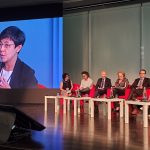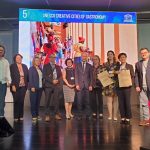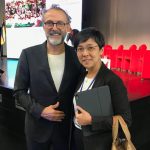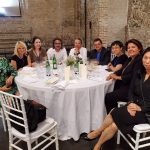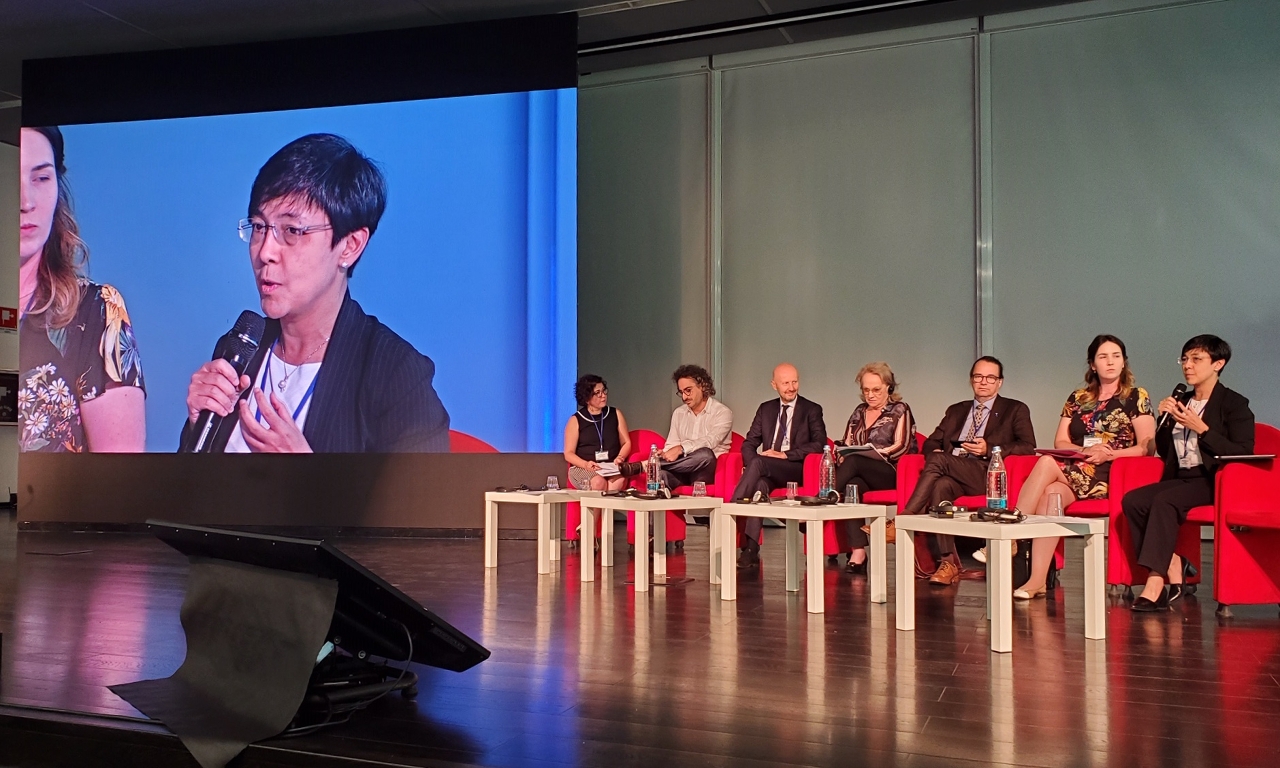 MGTO Director shares the example of Macao as a Creative City of Gastronomy at a panel discussion
MGTO Director shares the example of Macao as a Creative City of Gastronomy at a panel discussion
Macao was one of the cities invited to showcase the example of UNESCO Creative Cities of Gastronomy at a panel during the first UNESCO World Forum on Food and Culture, held September 12 and 13, in Parma, Italy. The event brought together government officials, international organizations, representatives and experts from around the world to discuss about “Culture and Food: Innovative Strategies for Sustainable Development”.
The Director of Macao Government Tourism Office (MGTO), and Macao SAR focal point to the UNESCO Creative Cities Network, Maria Helena de Senna Fernandes, accompanied by the Head of Training and Quality Management Department of MGTO, Doris Leong, was in Italy to speak at the forum.
Maria Helena de Senna Fernandes joined on Friday representatives from other five Creative Cities of Gastronomy, namely Östersund (Sweden), Florianopolis (Brazil), Panama City (Panama), Parma (Italy) and Tsuruoka (Japan), on a panel themed “The example of UNESCO Creative Cities of Gastronomy”. MGTO Director engaged in a discussion with the other cities, sharing Macao’s plans and experience on how the designation as a Creative City of Gastronomy in 2017 and initiatives undertaken, namely on food culture heritage preservation, on fostering gastronomic creativity and sustainability, are generating a positive impact in the sustainable practices and branding of the city, while contributing to push forward the United Nation’s Sustainable Development Goals.
Participants to the forum were welcomed on the first day with a speech by the Assistant Director-General of UNESCO for Culture, Ernesto Ottone Ramirez. The Minister for Agricultural, Food and Forestry Policies of Italy, Teresa Bellanova, also addressed delegates at the opening via a video message to the event.
Other thematic panels of the two-day forum zoomed in on key topics related to food culture and on exploring innovative pathways for the implementation of the 2030 Agenda for Sustainable Development. Among the several panels was “Cultural Heritage and Food: the foundations of cultural identity”, which discussed about the challenges and opportunities of reinventing traditions, while still preserving local identity. At another panel, “Education and sustainability: vocational training and new jobs”, guest speakers examined strategies for education to influence social transformation towards more sustainable practices. The forum also organized several other activities, including a special event conducted by the acclaimed Italian Chef Massimo Bottura, where he explored the idea of reinventing traditions.
Organized by UNESCO in collaboration with the Government of Italy, the forum was held in Parma, Italy’s first UNESCO Creative City of Gastronomy. As part of the plan to develop Macao as a Creative City of Gastronomy, MGTO actively organizes initiatives, as well as engages in international related events for exchange and learning opportunities on how to harness gastronomic creativity and food cultural heritage, as a driver for local development, innovation and sustainability. Some of the initiatives as a Creative City of Gastronomy carried out by MGTO, in conjunction with local stakeholders, include the “International Gastronomy Forum, Macao” held annually, joining other places in the world to mark Sustainable Gastronomy Day on 18 June each year, the creation of a Macanese cuisine database, a project with National Geographic named “The Great Green Food Journey” unveiled this year, and more.


